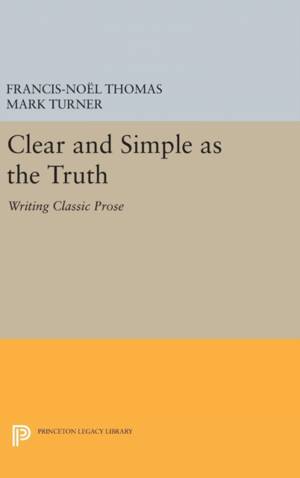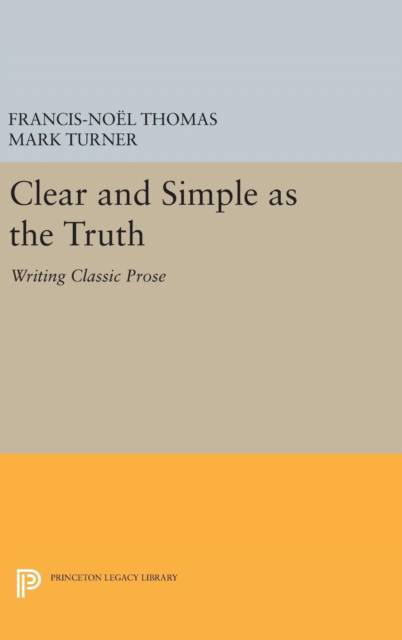
- Retrait gratuit dans votre magasin Club
- 7.000.000 titres dans notre catalogue
- Payer en toute sécurité
- Toujours un magasin près de chez vous
- Retrait gratuit dans votre magasin Club
- 7.000.0000 titres dans notre catalogue
- Payer en toute sécurité
- Toujours un magasin près de chez vous
164,45 €
+ 328 points
Format
Description
Everyone talks about style, but no one explains it. The authors of this book do; and in doing so, they provoke the reader to consider style, not as an elegant accessory of effective prose, but as its very heart.
At a time when writing skills have virtually disappeared, what can be done? If only people learned the principles of verbal correctness, the essential rules, wouldn't good prose simply fall into place? Thomas and Turner say no. Attending to rules of grammar, sense, and sentence structure will no more lead to effective prose than knowing the mechanics of a golf swing will lead to a hole-in-one. Furthermore, ten-step programs to better writing exacerbate the problem by failing to recognize, as Thomas and Turner point out, that there are many styles with different standards. In the first half of Clear and Simple, the authors introduce a range of styles--reflexive, practical, plain, contemplative, romantic, prophetic, and others--contrasting them to classic style. Its principles are simple: The writer adopts the pose that the motive is truth, the purpose is presentation, the reader is an intellectual equal, and the occasion is informal. Classic style is at home in everything from business memos to personal letters, from magazine articles to university writing. The second half of the book is a tour of examples--the exquisite and the execrable--showing what has worked and what hasn't. Classic prose is found everywhere: from Thomas Jefferson to Junichirō Tanizaki, from Mark Twain to the observations of an undergraduate. Here are many fine performances in classic style, each clear and simple as the truth. Originally published in 1994. The Princeton Legacy Library uses the latest print-on-demand technology to again make available previously out-of-print books from the distinguished backlist of Princeton University Press. These editions preserve the original texts of these important books while presenting them in durable paperback and hardcover editions. The goal of the Princeton Legacy Library is to vastly increase access to the rich scholarly heritage found in the thousands of books published by Princeton University Press since its founding in 1905.Spécifications
Parties prenantes
- Auteur(s) :
- Editeur:
Contenu
- Nombre de pages :
- 234
- Langue:
- Anglais
- Collection :
- Tome:
- n° 5201
Caractéristiques
- EAN:
- 9780691654744
- Date de parution :
- 21-03-17
- Format:
- Livre relié
- Format numérique:
- Genaaid
- Dimensions :
- 156 mm x 234 mm
- Poids :
- 503 g

Les avis
Nous publions uniquement les avis qui respectent les conditions requises. Consultez nos conditions pour les avis.






